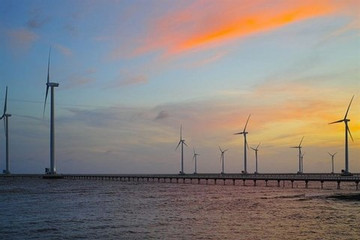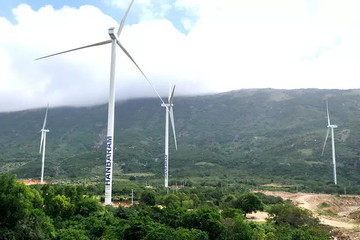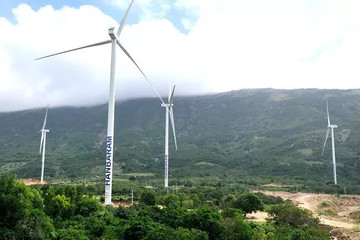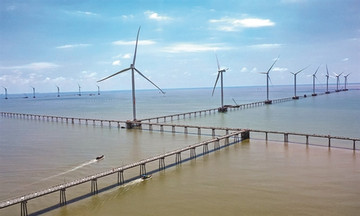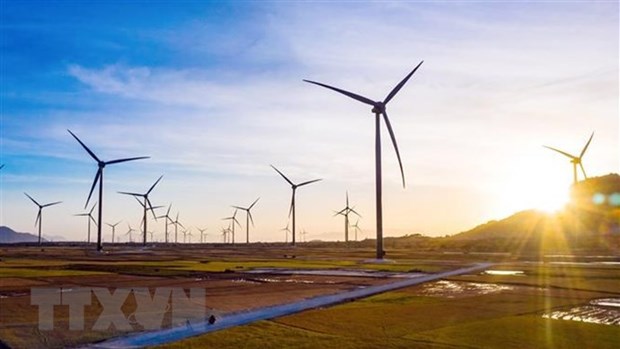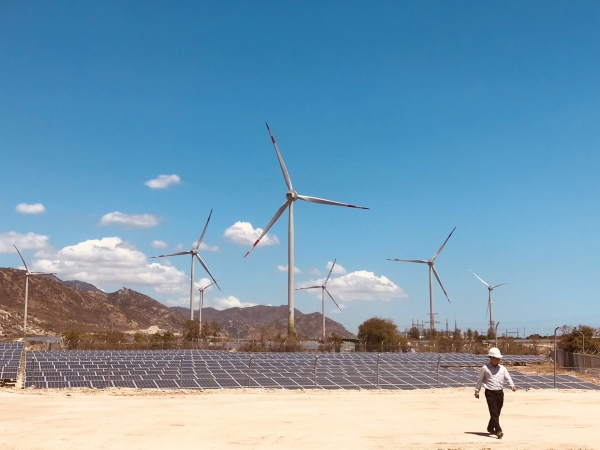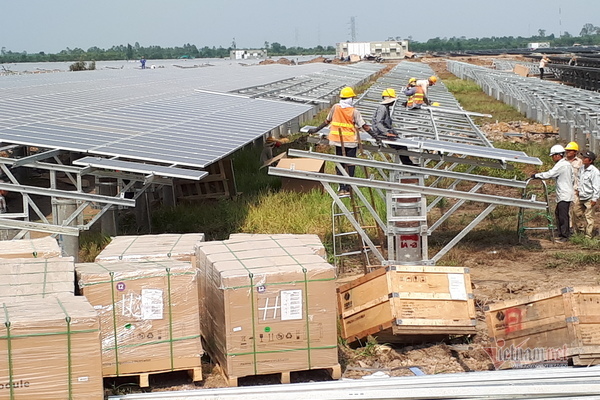- © Copyright of Vietnamnet Global.
- Tel: 024 3772 7988 Fax: (024) 37722734
- Email: evnn@vietnamnet.vn
renewable energy
Update news renewable energy
Determining solar, wind power prices still problematic
The electricity prices of many wind and solar power projects have yet to be determined following the expiration of the FIT (feed in tariff) policy, worrying investors.
Vietnam needs laws for sustainable energy development
The absence of laws on energy and in particular renewable energy is causing an imbalance between the stages of production, transmission and consumption of coal-fired power, solar power, and wind power in Vietnam.
Government promotes wind power, reduces use of coal-fired power under national power plan
The government has chosen wind power and renewable energy in general to implement global commitments by 2050. But this is not expected to be a smooth path for a developing country like Vietnam.
Renewable energy sources not fully tapped: experts
Barriers stemming from the unresponsive transmission network and pricing mechanism is wasting the capacity of billions of kWh of electricity.
62 wind-power projects unfinished: MOIT comes up with new solution
The Ministry of Public Security (MPS) is collecting information about credit contracts, outstanding loans and debt classification of project developers, while the Ministry of Industry and Trade (MOIT) has proposed new mechanisms for the projects.
Vietnam faces problems in developing power sources
The eighth power development plan (PDP VIII) shows concerns about the development of new electricity sources by 2030.
Wind turbines are idle, wait for new policies
The fate of unfinished wind power projects which failed to enjoy the FIT (feed in tariff) because they could not become operational prior to November 1, 2021 is uncertain.
Mekong Delta eyes rapid development of renewable energy
The Mekong Delta will need to optimise its natural conditions to develop renewable energy and attract investment in the sector to mitigate the impacts of climate change, experts have said.
Vietnam has 100,000 rooftop solar power projects
Power demand in Vietnam has increased by 10% per annum, which has required the country to use clean energy technologies, including rooftop solar power, to maintain high economic growth.
Saving billions of dollars, eighth power plan expected to cut electricity production costs
Deputy Prime Minister Le Van Thanh said the eighth national power development plan is designed in a way to put the common good and interests first.
From COP26: Vietnam's journey to become the world's green production center
Vietnam is known as a factory of the world. But with commitments made at the 2021 United Nations Climate Change Conference, more commonly referred to as COP26, Vietnam must become a "green factory", a green production center of the world.
MoIT propose auctions for renewable energy
The Ministry of Industry and Trade (MoIT) has put forth a proposal to start auctioning solar and wind energy projects that did not complete the technical test phase prior to October 31, 2021.
Solar power: state agencies loosens management, businesses commit violations
The Ministry of Industry and Trade (MOIT) has come to several conclusions after its review of issues related to rooftop solar power development.
Central Vietnam focuses on renewable energy
The central region is appealing to investors in the field of renewable energy to capitalise on its natural resources and boost economic development.
Vietnam reduces thousands of MW of coal-fired power in development plan
The total coal-fired thermal power capacity in the eighth national electricity development plan (Plan 8) is 14,800MW lower than the revised seventh plan. Vietnam is also considering developing offshore wind power.
Renewable energy offers investment opportunities in Vietnam
Vietnam’s target of raising renewable electricity to 45% of the national power generation capacity by 2030 and the need for investment worth up to $14 billion towards this goal have created opportunities for domestic and foreign firms.
Vietnam to become green manufacturing hub by 2050 through net zero approach
Vietnam’s commitment to achieving net zero emissions by 2050 at COP26 is expected to bring a tailwind of opportunities, facilitating the export of made-in-Vietnam products.
Government inspectors visit power plants, MOIT wants list of solar, wind projects
Deputy Minister of Industry and Trade Dang Hoang An has asked localities to compile the lists of wind and solar power plants in their areas.
Wind and solar power: race to exploit endless resources
In the Draft Power Development Planning 8, one of the power source scenarios with the highest scores is the development of power sources associated with renewable energy under Resolution 55 of the Politburo.
Capital conundrum in energy
A clear power policy and early publication of new power planning are urgently needed for Vietnam to attract private capital in infrastructure energy.

